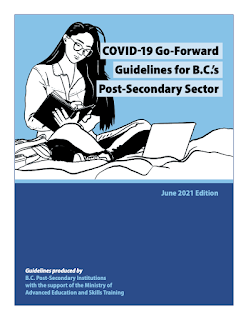Yesterday, a subset of my lab group (<10 people) had a gathering on the beach for the first time since COVID began. I wasn’t among them.
The normal way to interpret this is to assume that I don’t care that much about them, that I don’t really enjoy being around them.
Nothing could be further from the truth. I love these people. They’re brilliant, generous, creative, inspiring people that I’ve gone out of my way to surround myself with. I cherish the time I get to spend with them.
So, why did I miss the gathering? Because my wife had a really bad week.
Sounds lame, doesn’t it? The words wither in my mouth as I spoke them, by way of a quick explanation for my absence.
This blog post is the longer explanation, the one I realized I had to give. It explains a whole bunch of events I’ve skipped, tasks I have begged off, deadlines I’ve missed.
Let’s try that sentence again: (because) the woman I love and the mother of my children is suffering. Chronically, and last week was especially bad. For years I made it worse by pushing her when she had nothing more to give. No more.
The suffering is hard to understand from the outside. And for those who suffer, the feeling of shame that folks just don’t get it—even close friends and family—just adds to the misery.
 |
| chaya.goldberger, Flickr |
The family of conditions are called “complex chronic syndromes”. They include myeloencephalitis/chronic fatigue syndrome, multiple chemical sensitivities (MCS), fibromyalgia (sometimes called chronic pain syndrome). With permission, I’ll share that in my wife’s case it’s quite likely fibromyalgia, perhaps with systemic mold toxicity, explained partly by uncommon genetic predispositions. That’s the medical speak, the jargon.
On a human level, this manifests in an unceasing world of fog, incapacity, and hurt. It’s a body reliving past traumas—physical and otherwise—in an endless self-reinforcing cycle. It’s somewhat like having a flu and never shaking it. You still feel off, listless, achy, painfully tired, and out-of-it mentally. People think the pain is the worst of it, but that’s not my wife’s experience. The mental fog is the worst, and the anxious buzz. The pain seems most troublesome because of how it undermines sleep, which seems absolutely crucial for coping and any chance of recovery.
It’s so bad that many chronic sufferers can’t do most of what they used to do. My wife can’t work any longer. She can barely get up to function for appointments that start at 11:30am. One appointment is about all that she can manage in a day, they tax her so much. It’s hard to imagine recovering at that rate, given how many appointments seem necessary when so many things are off.
The biggest blow is almost certainly to one’s sense of self as a capable person. It’s one thing to be sick for a while, and get better. It’s another thing entirely to be so sick that you can’t do most anything, with no clear route to recovery. She will get better—I believe it firmly. But in the meantime, her incapacity gets in her head, dangerously.
And that kind of danger I can’t take lightly.
So life just isn’t the same—for me, either. I always shared child-rearing duties quite equally, and took pleasure in that. But whereas school drop-offs used to be shared, now that plus breakfasts are all mine. Ditto for cooking dinner (after my wife does dinner prep while I work), and bed-time routines—every night. I have 9-5pm on workdays for work; outside that, I’m primary parent >95% of the time.
Travelling used to be a big part of my job, but those days are long gone. When I travelled, I would work like a demon, cranking out 15+ hour days even while also juggling security checks, customs lines, and the rest. That was the only way I could keep up. I haven’t had a ten-plus-hour work day since March 5 2020, when I spent a solid seven hours on a whole-brain task and also cleared out hundreds of emails, including some complex ones. It’s crazy that I miss it.
I don’t need a pity party. My wife is the one who's suffering. (She just wants doctors to stop saying or suggesting that it's all in her head.) I have a few colleagues who are single-parenting, and what I’m going through is not close to that. My wife still does a lot, and she is there to balance out my heavy-handedness and all my other parenting foibles. Plus she’s there for me when I need her.
 |
| from Flickr |
I used to think that meant that I could travel, and she’d rally. And she did. Before I understood her condition—before either of us did—I thought this was OK. I’d have a work trip on the horizon. As my departure approached, she would grow increasingly anxious about coping without me. Inevitably, she would lash out, and I’d get defensive at the perceived guilt trip. We’d argue for days. When I would return, she’d be sapped, but she would have made it.
“What doesn’t kill you makes you stronger,” they say. I don’t think they suffered from a complex chronic illness.
These trials certainly didn’t seem to be making my wife stronger. The knowledge that she had made it through before was no comfort next time around. If anything, the anxiety was worse.
I’m done making it all worse. I don’t want to see how far she can be pushed. I want to make space for her to get better.
—
This post deepens my understanding of achieving balance in academia, which I reflected on in the following three posts from 2015:
.
.





